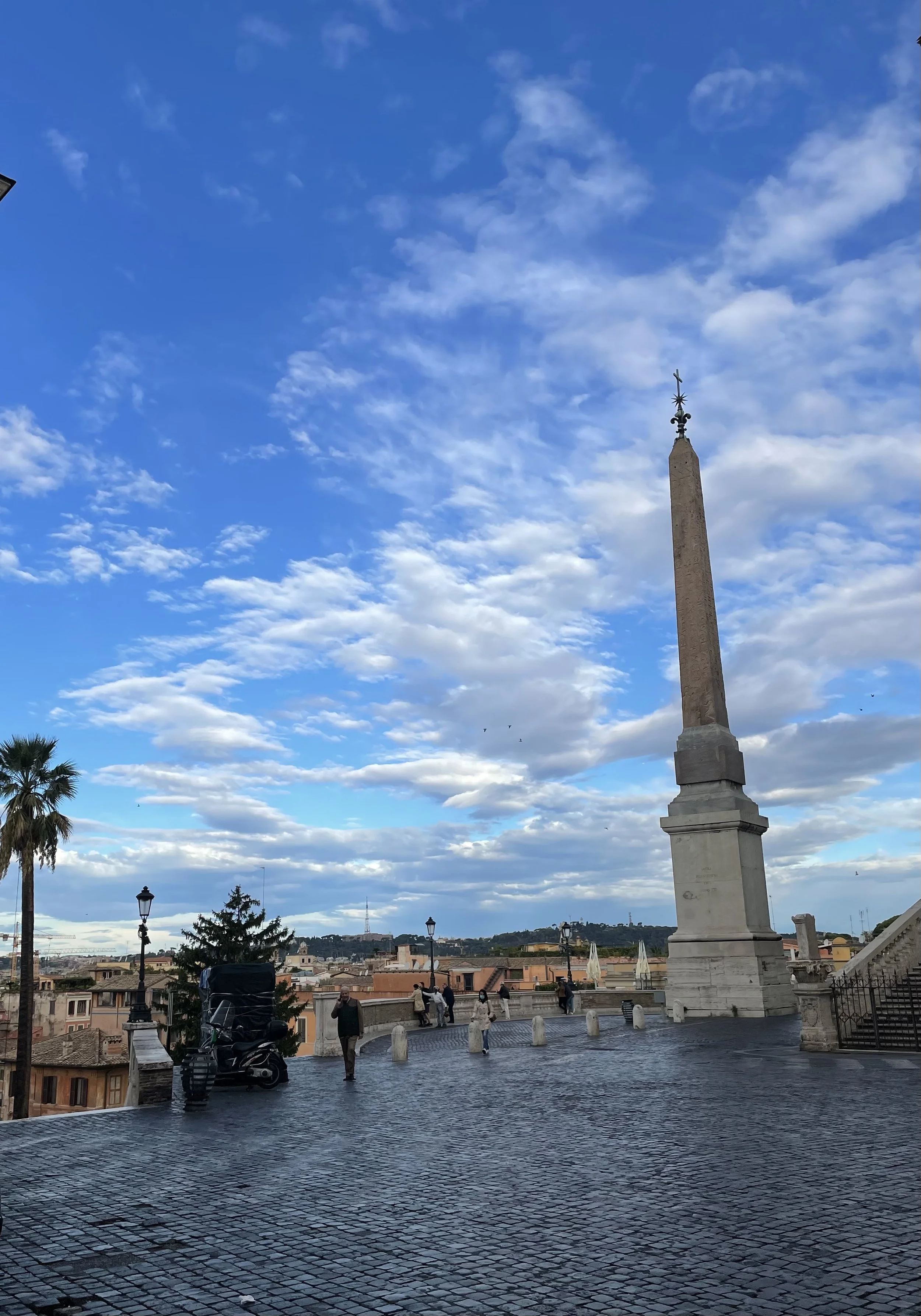GOING POSTAL IN ROME
Whenever I receive a package slip from the Italian post office, it may as well be a notice for a root canal. All Italians join me in the misery as hours upon hours are lost waiting in line at the post office, and often not everything is resolved in one trip.
A package I had been expecting from my brother had arrived from New York but, unfortunately, I hadn’t been at home to receive it. Therefore, I had to pick it up in person, and present the slip of paper with my name on it. I groaned when I saw it was addressed to Sheila Ortona, my married name, as opposed to Sheila Pierce, my maiden name.
I’ve never changed my name on any of my official documents after marrying my Italian husband almost twenty years ago. In Italy, all women maintain their maiden name. I’ve concluded that it’s not a feminist thing – it’s less paperwork. So, even though I am married to an Italian, and I am known in the foreign service under his name, I still use my maiden name on all official documents.
Knowing what awaited me at the post office, I entered armed with my Italian diplomatic passport, which cites my maiden name. It also clearly states my husband’s name, his profession, and his affiliation to me.
When my turn finally arrived to approach the counter, which often feels like an altar or a confessional booth depending on which employee you get, I presented the postal slip along with my Italian diplomatic passport.
“But, you’re not Sheila Ortona,” quipped the postal clerk. “This document says you’re Sheila Pierce.”
I explained that I am actually both – Pierce by birth, Ortona by marriage. She was not convinced. We went back and forth about this as if at a Wimbledon match and I could hear participants behind me, waiting in line, moaning in sympathy (or annoyance, knowing how long this might take to win the match point).
After a heated argument and a flurry of hand gestures, she refused to give me the package.
“Excuse me, signora, but who are you?” she asked me. “How am I to know who you really are?”
It’s a valid question, one I ask myself every time we move, every time I pick up my identity, like a tired costume, in one country and move on to wear it in our next posting. I felt my cheeks growing rosier than the blush I’d applied earlier that morning. I felt my heart racing, my voice quivering with trepidation, as if I were at the oral exam of a PhD in Italian, and I had forgotten the subjunctive and the passato remoto.
“So,” she barked as I started to lose stamina and grew quiet. “Who. Are. You?”
Here’s the deal, signora. I’m not entirely sure who I am. Are you?
And it is about my name, you got it.
When I moved to Italy at age 25, I was Sheila Pierce. I worked as a journalist then, and grew into my name as I saw it repeatedly appear in bylines in either American newspapers or magazines.
Over time, I grew into Sheila Ortona, in marrying my husband after a seven-year courtship and having two kids. We moved away from Italy for eight years – four in Belgium and four in Israel. During those years, I wasn’t sure if I was still Sheila Pierce because my writing and profession subsided with motherhood. I was far away from America, and comforts came to me from Italy.
Meanwhile, every time my husband and I attended work events for his job, I became Sheila Ortona, speaking the Italian required of the company. In reality, during all those chaotic times in which we stayed out late for his job and woke up early for our kids, I felt as if both of my identities were slipping away. I was exhausted in juggling all of it.
I felt like Sheila Pierce Ortona, trying to do it all as wife of, mother of, daughter of, sister of, friend of, and, felt as if I were failing at it all. But I kept playing my roles – mostly of wife and of mother – with a stage set that changed every four years between acts. I wasn’t always sure what role I was in, what outfit I was to wear, what lines I was supposed to recite, as they changed from day to night. And, in all this, my writing voice faded. When my kids were babies and toddlers, I had little time to write, and, if I had it, I often slept instead.
And, let me tell you, signora, I only came into my own as Sheila – not Pierce or Ortona but just as plain old me – once I moved back to my own country after almost 15 fifteen years of living outside of it.
Why did that happen then and there, you ask, and not beforehand?
You, see, signora, I recently moved back to Rome after living in California for five years because my husband, like you, works for the State. We were posted in my country – but representing Italy, a country which I love as my own, and which has kindly adopted me even though my official document – yes, the one you are holding – says I was born in the USA.
It was in San Francisco, actually, that I arrived as Sheila Ortona, as a wife and a mother, two titles which I am proud to hold on to for life. Over time, while there, I became known as simply Sheila to the Italian-American community that embraced me on the West Coast. People were curious to hear my voice, my story, my storytelling, and, somehow, my voice started coming back, stronger and louder. In years past, in other countries, I spoke softly, hesitantly as either Sheila Pierce or Sheila Ortona, perhaps because I was young, naïve, shy, always listening and observing, and just plain growing up.
You see, signora, language is my thing. Once in America, I had my ammunition back. I could tell stories in my mother-tongue without worrying I’d lose my audience half-way through a tale. I fired back retorts. I stated my opinions when asked (diplomatically, as I had to be careful about what I said in politics because, officially, we were guests in my own country).
I got the impression that people wanted to hear my story, not just my husband’s, and that mine added to his, and together we formed ours.
In San Francisco, I may have opened the door countless times as hostess Sheila Ortona. But, once inside, my guests were entertained by Sheila Pierce. In switching in and out of both languages, I grew in to myself.
So, signora, I have a question for you. As my son reminded me from a Pirandello story he was reading for school in Rome, are we ever the same person with the same people? Or, are we, in fact, a different person every time our audience or company changes? And what about if you switch countries and languages? Then, who the hell are you?
Today, signora, I will answer your question: I feel American in Italy, and Italian in America. I’m two people in one body and spirit, constantly juggling two countries, two cultures and two languages, sometimes three. You may be confused but I’m not really all that confused about myself. Because I know my name and it is simply Sheila.
Please, give me my package.
After I finished my silent, inner monologue, I asked the postal clerk if I could sign a piece of paper which declared that I was both people. She curled her lip, rolled her eyes, raised her eyebrows and, eventually, gave in by signing her name next to mine. She then went to retrieve my package.
She returned with a registered letter – from the post office. It was not the package. It was a letter about the package. Refusing to lose my place in line, I opened it up in front of her. I was hoping to provide the necessary information immediately to then be able to retrieve the real package and avoid a return trip.
In the fine print, the letter stated that customs needed my Italian social security number and signature in order to deliver the package to me (not clear why but I wasn’t about to ask). And, then, they wanted me to fax it to the post office. A fax sounded as antiquated as standing in line at the post office. I had recently noticed that the printers sold at the local equivalent of Best Buy no longer offered the fax option.
I told the postal clerk that I could provide the information and my signature immediately, and, then, give her the piece of paper right then in person.
“No, you have to fax it,” she said.
“I have to fax it to that machine?” I said, pointing at the Hewlett Tyrannosaurus Rex Packard next to her.
“Si’,” she said, with a poker face which would have won her all bets at Vegas.
The contents of the package were not valued at much – leftover clothes we had forgotten in a drawer in my parents’ house and a new pair of sunglasses to replace a pair my brother’s puppy ate for dessert. It had cost $82 to send the package with American priority mail.
The letter stated I’d have to pay another $60 to receive it – customs’ costs, you see. Was it worth it? No, not for the contents.
But perhaps to prove my point that I was more than a name. I was a person behind the name. With an identity, or two, and a middle-aged breakdown taking place in an existential moment at the post office as I transitioned from one country I had been living in back to another.
I went home with my pathetic piece of paper that I’d clocked two hours to retrieve, and read the small print. I saw that I could actually email the information as well as fax it. So, I scanned it all, and sent it off by email.
About a week later, the package arrived.
And, so had I.




